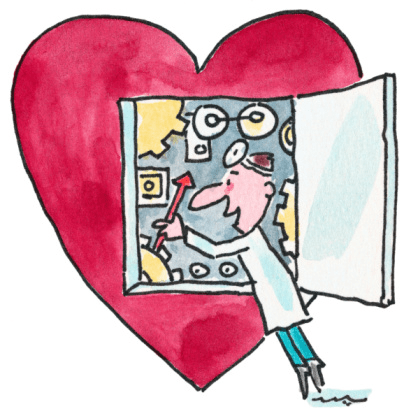by Carolyn Thomas ♥ @HeartSisters 
I don’t remember much of what happened during that fateful visit to the Emergency Department. I remember the on-call cardiologist saying something to me about my “significant heart disease”. After hearing those words, I felt so stunned that – although I could see his lips moving and could hear sounds coming out of his mouth – he may as well have been speaking Swahili. (Doctors, please remember this in the future when delivering life-altering diagnoses to your patients!)
What I do vividly remember, however, is a small but profound act of kindness later that day when I was brought to my bed in the CCU (the cardiac intensive care unit). Continue reading “Kindness in health care: missing in action?”

 For the freshly-diagnosed heart patient, the immediate and sudden change from “being well” to “recovering” cuts directly to the core of self-concept and self-esteem, according to
For the freshly-diagnosed heart patient, the immediate and sudden change from “being well” to “recovering” cuts directly to the core of self-concept and self-esteem, according to 
 There’s an old joke about a woman who is successfully losing weight by following a very strict diet. But one day, her hubby returns home to find her sitting at the kitchen table finishing off a Hershey chocolate bar. He says to her: “Honey! You’ve been doing so great on your diet until now! How could you eat that chocolate bar?”
There’s an old joke about a woman who is successfully losing weight by following a very strict diet. But one day, her hubby returns home to find her sitting at the kitchen table finishing off a Hershey chocolate bar. He says to her: “Honey! You’ve been doing so great on your diet until now! How could you eat that chocolate bar?”